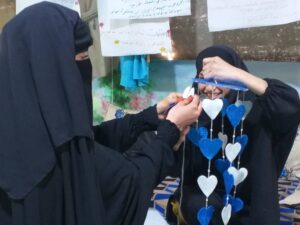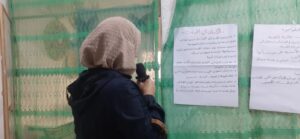Background
Like the rest of Syria’s developing provinces, Raqqa has for decades suffered from marginalization. The province of Raqqa was the first to be free from regime control in its entirety, coming under opposition rule in March 2013. In a bid to meet the pressing need to provide services, a civil society movement began to take shape in the province amid the total absence of any Syrian regime presence.
Shortly after, a large number of newly-founded organizations were established and began operating in various fields including rehabilitating basic services, providing societal activities such as psychological and social support, as well as empowerment of women and vulnerable groups. A large number of local councils were formed in the interim in different cities and towns inside the province, the most prominent among them was the Local Council of Raqqa, which served as the most well-established display of executive authority in the region.
This coincided with the emergence of the Islamic State of Iraq and the Levant (ISIL) and its later expansion towards different regions across Syria. In mid-2013, at a time when ISIL was making attempts to grab additional territories, a number of abductions and assassinations of prominent local society figures have led many activists, fearful for their lives and of suffering a similar fate, to either completely suspend all activities or flee to neighboring Turkey.
In early 2014, opposition forces that were in control of the province were forced to retreat under ISIL attacks, which allowed it to overrun large swaths of territories and declare Raqqa as the capital of its state in January 2014. Gradually, all groundwork for civic operations was terminated in the region, save for a small number of groups that continued to work covertly in the province.
In late 2017, as the Syrian Democratic Forces (SDF) made gains in the region, ISIS’s hold on power began to diminish, paving the way for the resumption of civil society activities, coinciding with the gradual return of a considerable number of civil workers as stability was slowly being restored. Activists and technocrats like engineers, lawyers, and others started establishing a number of organizations and initiatives in order to meet the needs of residents as well as provide various services in the region. Within a few months, the number of local, Syrian, and international organizations operating in Raqqa soared to over thirty.
In October 2017, following the liberation of the entire city from ISIL, the Civil Action Forum team began operating in the region by launching a cooperative initiative to support civil society. The initiative brought together representatives of organizations working in the region through public meetings and mini-workshops focusing on specific fields of expertise that should be prioritized, in accordance with the orientation and objectives of each CSO as well as through highlighting the needs of the local community. Among some of the most significant results to emerge from the initiative was the establishment of a “tree of needs” in each region that demonstrates areas of intervention, challenges, and obstacles facing civil work as well as an analysis of the current situation. The initiatives, suggestions, and proposals were included as a basis for the initiative’s future work plans and activities.
Based on the outcome of the “Sharek” initiative, the team started working on expanding the scope of its activities in order to ensure the sustainability of the initiative in the long term. Hence, came the idea of a center that serves as an incubator for individuals and organizations working in the region. The CSSC aims to provide a wide range of services that help develop the capabilities of these institutions and build a common civil workspace by opening two hubs, the main center in the city of Raqqa and a sub-center in the city of Al-Tabqa.
Recommendations
- Emphasize the need to work with local CSOs through cooperative workshops in order to identify areas of work and specialization, taking into consideration target groups and local community needs.
- Work in cooperation with partners and stakeholders on raising awareness regarding the importance of participatory approaches and community participation in identifying operational priorities and methods.
- Build and develop channels of communication and cooperation between local and non-local organizations, especially those working in relevant fields, to avoid competition and conflicts of interest as well as encourage the sharing of expertise and resources to ensure the maximum benefit for all involved, and increase the overall efficiency of civil work.
Cooperate with local authorities in order to facilitate and speed up registration and legal licensing procedures. - Encourage international NGOs and donors to grant local organizations more freedom and independence in terms of their operational approach and chosen projects, taking into account the needs of local communities when designing projects and grants.


